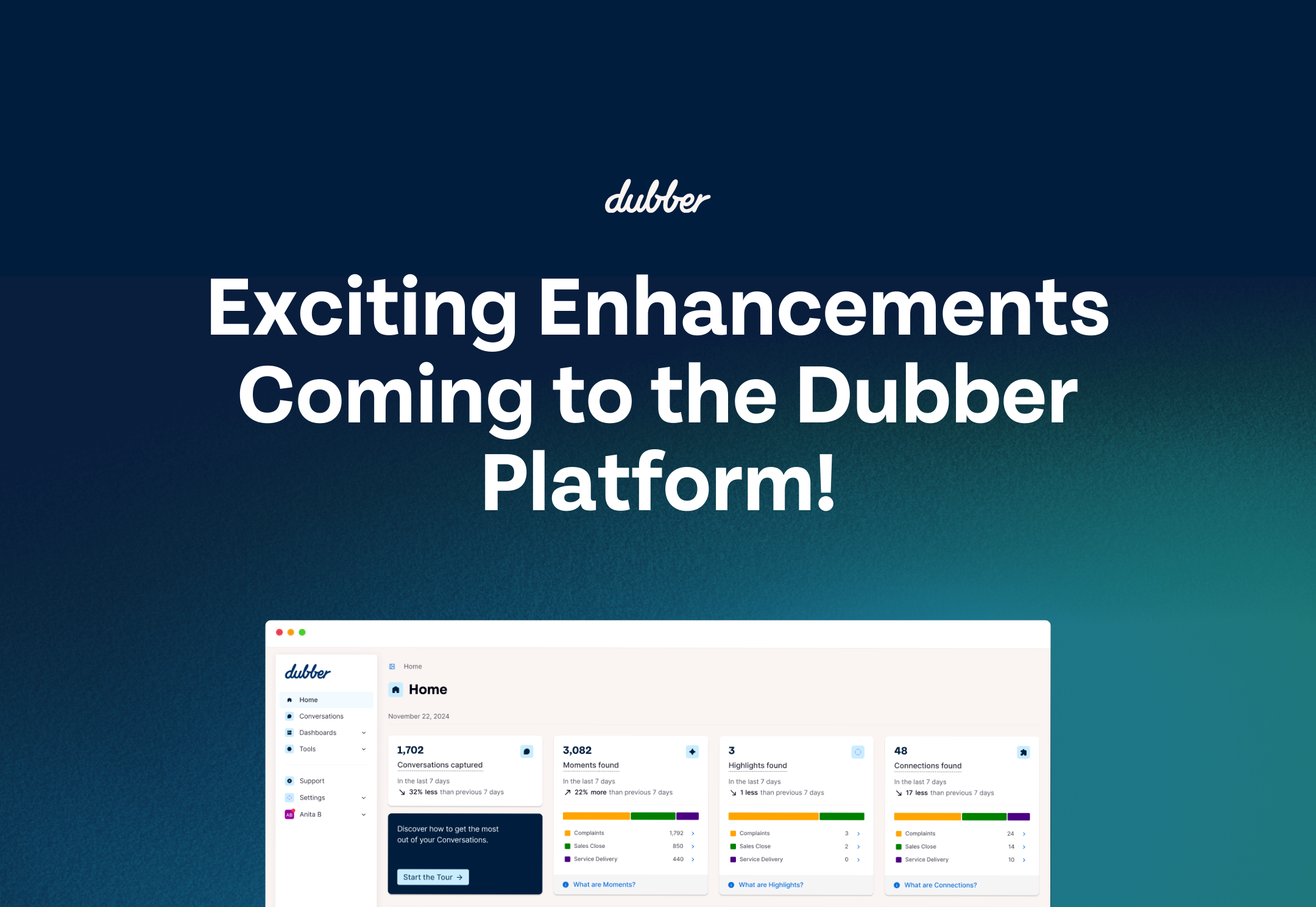
PRESS RELEASE
Dubber achieves compliance call recording certification for Microsoft Teams
Rigorous, in-depth third-party certification process ensures user experience meets all Microsoft-defined quality and security parameters
Melbourne, Australia, and Dallas, Texas, 2 February 2020 — Dubber today announced that it is among the first Unified Cloud Call Recording solutions to achieve compliance call recording certification for Microsoft Teams. To be certified under the Microsoft program, companies are required to submit their solutions for rigorous third-party approved testing for quality assurance, performance within the Microsoft Azure environment, interoperability and compatibility with the Teams user experience, security and compliance, marketing and customer support.
Achieving Teams Certification for the Dubber Unified Call Recording (UCR) solution means service provider partners, channel partners and enterprises are ensured of a trusted solution that has met the highest levels of testing for the Teams platform. Spanning several months of rigorous testing, Dubber’s solution met and, in many instances, exceeded the parameters of the certification process for voice, video, and screen share. As a part of the certification process, Dubber will also be included in the Microsoft AppSource Marketplace for compliance.
“Achieving Microsoft Teams Certification for Compliance is a significant first for Dubber and our partners. Successfully completing this rigorous level of testing, our service provider partners and enterprise users can be confident the Dubber platform will meet their requirements for security and compliance call recording on the Teams environment. The Teams compliance certification is especially significant for our customers in the banking, government, insurance, and financial services environments who are often under legal mandates to record and store call recordings. With Dubber, they can eliminate costly on premises and cap-ex intensive solutions and meet their obligations for Teams users in call center, branch and work-from-home environments simply, easily and with confidence,” said Adrian Di Pietrantonio, EVP, Global Platforms & Partnerships, Dubber.
Mike Ammerlaan, Director, Microsoft 365 Ecosystem at Microsoft Corp. said, “Our partners are an essential part of meeting our customers’ communication and collaboration needs with Microsoft Teams. We are pleased to have Dubber successfully complete the Teams compliance recording certification process. This can help their customers– especially in the financial services sector –stay compliant and meet their call recording obligations for calls placed in Teams.”
Background:
- As a part of the certification process, Dubber is listed in the AppSource Marketplace here: https://appsource.microsoft.com/en-us/product/web-apps/dubbercorp1603082091027.dubber01?src=wnblogjan2018&tab=Overview
About Dubber:
Dubber is unlocking the potential of voice data from any call or conversation. Dubber is the world’s most scalable Unified Call Recording service and Voice Intelligence Cloud adopted as core network infrastructure by multiple global leading telecommunications carriers in North America, Europe and Asia Pacific. Dubber allows service providers to offer call recording for compliance, business intelligence, sentiment analysis, productivity and more from any endpoint. Dubber is a disruptive innovator in the multi-billion-dollar call recording industry, its Software as a Service offering removes the need for on premise hardware, ties to specific applications or costly and limited storage.
For more information, please contact:
Investors
Simon Hinsley simon.hinsley@dubber.net +61 (0) 401 809 653
Media
Terry Albersteinterry@navigatecommunication.com.au+61 (0) 458 484 921
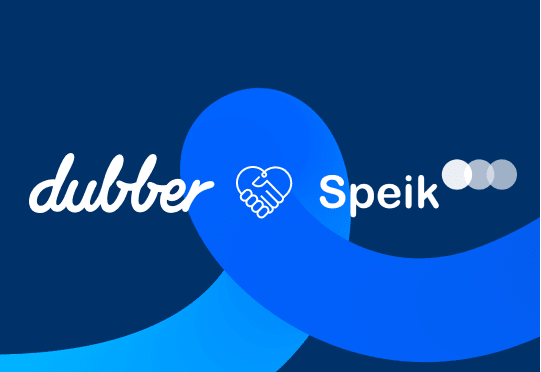
Today we welcome Speik to the Dubber family.
Growth through Dubber’s continuing global execution – and by adding service provider footprint and capability through acquisitions – is core to our strategy. The aim is simple – grow faster and deliver more services to more service and solution providers, Enterprises, SMEs and Governments than ever before.
Matthew Townend, Executive Director, Cavell said it well:
“Service and Solution Providers are in a race to achieve differentiation and answer the accelerating compliance, security and productivity demands of Enterprise. Dubber with Speik creates an industry-leading offering for service and solution providers and deep capability in addressing compliance and call recording needs within SME’s and Enterprises.”
Demand for Unified Call Recording continues to accelerate driven by compliance, dispersed workforces driving demand for IP-based and mobile conversations, and the need to capture crucial conversations for business continuity, operational and team productivity.
To meet this need, we’re continuing to move quickly. Unlike others who have concentrated on doing this within specific applications or use cases, Speik aligns with our approach of capturing billions of conversations as they take place in the service provider network and major communications solutions – like Cisco Webex and Microsoft teams.
By doing so, we enable Enterprises and Government users to capture calls from any endpoint while eliminating their need for costly hardware, professional services and ever-escalating costs as data grows.
And critically, we can fully answer the need of the modern Service Provider working across SIP, Mobile and UC end-points – enabling them to deliver a complete and differentiated solution to customers.
Why Speik?
Speik is a leading provider of call recording solutions to UK service providers – in particular, O2’s mobile network – and has strong solutions capabilities for addressing PCI and other compliance mandates.Sergio Budkin, Director of Business Products and Propositions, Telefonica UK Ltd (O2);
“Together with Speik, O2 has been providing the mobile recording service in the UK, enabling compliance, improved customer experience and productivity gains for Enterprises and Government. We welcome the opportunity to expand those services via Dubber’s industry-leading offering across multiple sectors and delivery platforms.”
Our combined capabilities will accelerate Dubber’s industry-leading growth and address the significant opportunity for compliant Unified Call Recording. The acquisition immediately grows Dubber’s market-leading position in EMEA and contributes positively to Dubber’s annual recurring revenue (ARR) momentum.
And Speik are profitable – which adds to our bottom-line and gives us confidence that as we invest in growing Speik through sales and marketing, it benefits our customers and shareholders.
Steve McGovern, CEO, Dubber on the Speik acquisition:
“Dubber’s acquisition of Speik is fundamentally accretive on all levels. Speik brings to Dubber a strong footprint in the leading UK-based mobile network provider, world-class technology resources, and a growing base of subscribers.
“The team at Speik has been a pioneer in terms of network-based mobile recording together with O2. Their success with one recording partner over 7 years provides an insight into Dubber’s ambitions for its own 130plus service provider partners, globally.
“The Dubber product suite has a capability to expand Speik’s revenue opportunities with O2 – and other service providers – from its current enterprise focus into the larger addressable markets of mobile SME and across UC and Microsoft Teams services with Unified Call Recording.
We believe that Dubber can substantially accelerate growth and adoption in that and other key UK-based relationships — and use Speik’s PCI services to drive additional revenues into our service provider partners. We welcome the Speik team to our growing Dubber family and look forward to serving our mutual customers like never before.”
Dubber’s scale and industry-leading Unified Call Recording technologies will enable to Speik to grow across the UK and EMEA. We’ll also be bringing Speik capabilities to service providers globally.
A Unified Approach to UCR
Speik and Dubber have a common network-centric and Cloud-first technology approach enabling us to accelerate the evolution of Unified Call Recording and Dubber Voice Intelligence Cloud.
Simply put, that means any conversation from any endpoint captured – and from any call recording solution – in the Dubber Voice Intelligence Cloud. There it can be shared with applications like Salesforce, big data sets and data visualisation and analytics platforms like Tableau and Google Data Studio.
2021 will see more Enterprises and Governments moving to realise the potential of voice data — together with Speik we are best positioned to help Service Providers meet that opportunity.
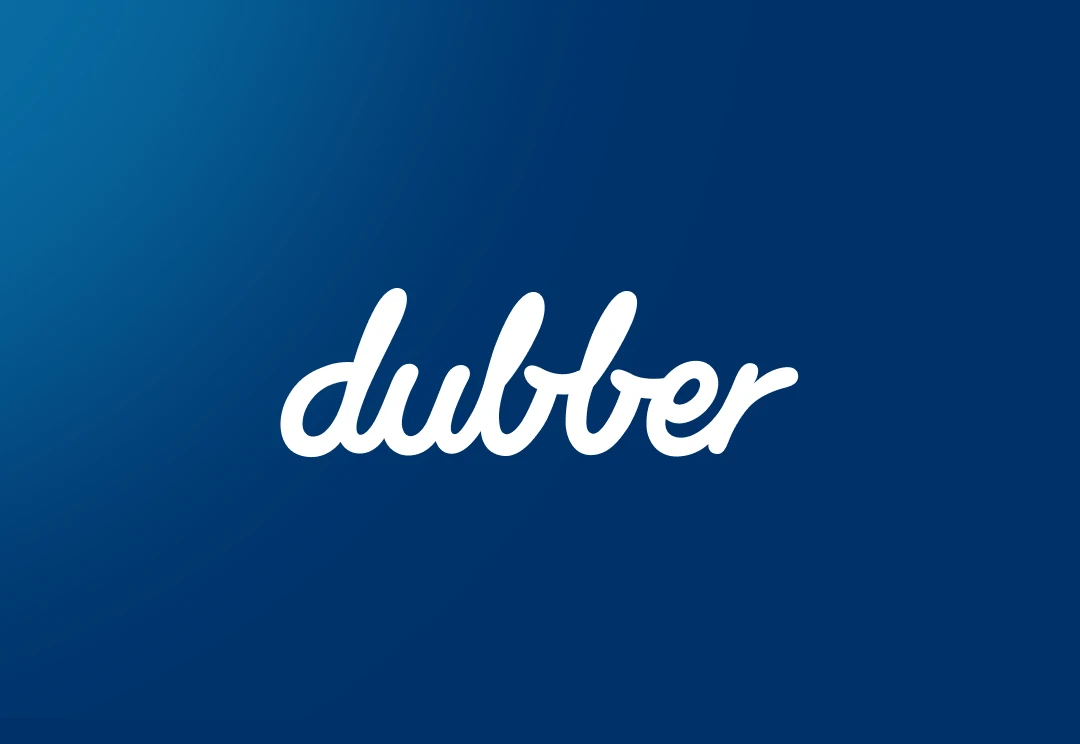
New agreement expands reach of Dubber’s Unified Call Recording & Voice Intelligence Cloud with IBM & Ingram Micro Advances Dubber vision for ‘AI on every Phone’
Sydney, Australia, 7 December 2020: A leading global provider of cloud-based call recording and voice AI, Dubber (ASX:DUB), is the latest Australian company to sign up to utilise IBM hybrid cloud technologies as part of their product offerings. The new three year agreement will see Dubber expand its industry-leading Unified Call Recording and Voice Intelligence Cloud services to include IBM Hybrid Cloud and advanced security through IBM Hyper Protect.
Dubber has been working with IBM over the past 18 months to develop a cloud-based solution which uses IBM Watson Speech to Text to transform call recordings into actionable data that can be tagged, recalled, analysed, searched and saved as text to store all telephone interactions in the cloud. The solution will be available via Dubber’s existing solution providers and partners.
Dubber CEO, Steve McGovern, said, “Continuing to expand our successful partnership with IBM to include IBM Hybrid Cloud and Ingram Micro distribution will further accelerate our vision of putting AI in every network and on every phone. The security and scale at which we can achieve Unified Call Recording will enable networks to make the crucial shift from connections to delivering value from the content on the network like never before.”
“Together we are transforming the economics of capturing conversations – using the Cloud, AI and infinite scale – for service providers in a way that will ultimately enable it to be offered as an ubiquitous service,” added McGovern.
“Hybrid cloud is swiftly becoming the dominant force driving change in businesses. As companies work to modernize workloads and build new business applications on the cloud without jeopardising security and control, they are turning to IBM Cloud,” said IBM Head of Cloud for ANZ, Anthone Withers.
“As part of this agreement, we are also helping Dubber expand their business globally as an independent software vendor (ISV) through Ingram Micro so they can continue to grow, and expand their network.”
IBM’s hybrid cloud approach is built on a foundation of open source software, security leadership, and enterprise-grade infrastructure. Data protection and security services have been embedded into IBM’s hybrid cloud architecture to protect a client’s processes, applications and cloud services, while managing compliance requirements. For example, IBM Cloud Hyper Protect Crypto Services will provide Dubber’s customers with a heightened level of security as they control their cloud data encryption keys – ensuring that only the client has control over their crypto keys – and that not even IBM can access.
Additionally, earlier this month, Dubber announced its inclusion in the 35+ member strong partner ecosystem for IBM Cloud for Telecommunications: an open, hybrid cloud architecture designed to help telecommunications providers address the specific challenges of the highly-regulated industry: accelerating business transformation, enhancing digital client engagement and improving agility as they modernize their enterprise applications and infrastructure to unlock the power of 5G and edge.
As part of its work with the ecosystem, Dubber’s Voice Intelligence Cloud will integrate and be interoperable with IBM Cloud for Telecommunications, to help enable providers to deliver next generation Unified Call Recording and Voice AI Services on one cloud platform.
For more information about IBM visit www.ibm.com.au

Dubber Acquires Leading UK Mobile Recording Company Speik

2021 will be different
2020 was anything but the year any of us expected. Predictions made in January seemed to have little relevance by March and vapourised by July.
So where should Service Providers, UC solutions and their Resellers focus to maximise revenue and opportunities in 2021?
While some geographies, notably Australia and New Zealand are returning to a degree of certainty, for many others, uncertainty remains the norm. What is clear are the growth opportunities that have accelerated in response to new customer and business needs.
- Dispersed workforces + Proliferation of end-points = Shift from connections to mining the value in conversations and content
Workforces will continue to disperse, increasing the demand for unified communications and security solutions that enable Government and business to work across many endpoints. Remote work practices will continue to reshape work itself, accelerating adoption of Cloud solutions. And 5g will only add fuel to the fire.
Action: Service and Solution providers – and their partners – are seeing continued strong demand for UCS and UCaaS platforms. And targeting those opportunities is the first step to underpinning growth. The second step is to develop solutions that answer broader needs for compliance, security and productivity.
Unified Call Recording is central to developing these solutions – moving Resellers from simply selling connections to delivering value from multiple and dispersed end-points in the Cloud. That value ultimately will come from ending not knowing and providing insights into every customer and employee interaction.
- Big Data + Voice Data = Bigger Big Data that’s compliant
Voice interactions with customers and between employees either rank first or second as a form of communication. And yet they account for a fraction of the Big Data pool accessible by most businesses. The moment the conversation ends, the value within the content is lost.
2021 will see a rapid shift to capturing voice data – driven by the new economics of Unified Call Recording and the Voice Intelligence Cloud aggregating conversations as data from any end-point.
Action: To take advantage of this rapidly emerging multi-billion dollar market opportunity for Voice data as a Service (VdaaS), Service and Solution providers – and their partners – need to present UCR as an integral part of the UCS sale and a key ingredient for compliance, business continuity and improving customer experience.
Default call recording solutions associated with many VOIP products typically don’t meet Enterprise-grade data and security policies or satisfy regulatory requirements. Many only store recordings for a limited time, offer poor transcription, and do not offer any form of speech analytics or voice data AI. Dubber Unified Call Recording and voice data intelligence is compatible with most VOIP products, and can be added without the need for any further hardware.
- Ecommerce Acceleration = Need for continuous intelligence
Ecommerce growth rates are now in high double digits with nearly every business under pressure to accelerate digital transformation with the aim of improving customer experience. But to improve customer experience, businesses need to shift to continuous customer intelligence.
Action: Service and Solution providers – and their partners – integrating Unified Call Recording and Voice Intelligence into their UC offerings are able to differentiate, offering businesses the pathway to continuous intelligence from every customer conversation. Rather than reporting on NPS or customer satisfaction at the end of a quarter, customer experience – along with sales, marketing and agent performance can be made available in real time. And through open APIs, that data can be used to fuel dashboards, via applications such as Salesforce.
- AI + Voice Data = Better Decisions
By 2030, AI products will contribute more than $15.7 trillion to the global economy. The use of AI to analyse and predict human behaviour will become standard practice for businesses looking for trends across their business in customer experience and behaviour, churn reduction, cross-selling and marketing.
Up to 90% of a company’s data is defined as unstructured. Traditionally this type of data, particularly phone calls, has been difficult to capture and analyse. Dubber AI solves this by providing the ability to analyse voice data for sentiment analysis, keyword identification, and transcription – enabling companies to draw on this data to drive strategy and decision making.
Action: Shift to presenting AI-first solutions that automate the delivery of continuous intelligence from conversations. Critical use cases such as compliance and creating records of crucial conversations are an imperative for every regulated business. But the benefits don’t stop there.
By looking for AI beyond the conversion of voice to data, solution providers can show how that same data can be used to provide a productivity edge and improve data overall.
That same data is as valuable internally as it is externally to measure employee performance and sentiment across the distance of remote working. Businesses can also make use of voice data to provide transcripts of meetings to teams, saving on note taking, and creating further efficiencies.
- Distance + Increasing Regulatory Scrutiny = Compliance Complexity
Demands by Regulators to Know your Customer (KYC) and a shifting data and privacy landscape is creating a growing demand for complete solutions to answer needs for rapid investigations, continuous compliance reporting and voice data management.
The UK’s exit from the EU will mean that the GDPR will have major implications for European businesses who process or store data in the UK. Businesses who operate within the European Economic Area (EEA) and record their phone calls must check that their protection of voice data is sufficient for a post-Brexit world.
Action: With the increase in UC communications, and the resulting level of data being stored in the cloud, Resellers will need to understand the data laws impacting the collection and storage of conversational data. And solutions that lower the cost and burden of compliance reporting through real-time search, alerts and notifications are vital.
If 2020 wasn’t what we were expecting, 2021 is shaping-up to deliver as many surprises. Service and Solution Providers, and their partners, can ready themselves to turn change and uncertainty into opportunity by focusing on the shifts and creating the solutions to answer the needs they surface.
Voice data is central to creating these solutions as businesses increasingly turn to it to drive their decision making, predict customer behaviours and guide business direction.
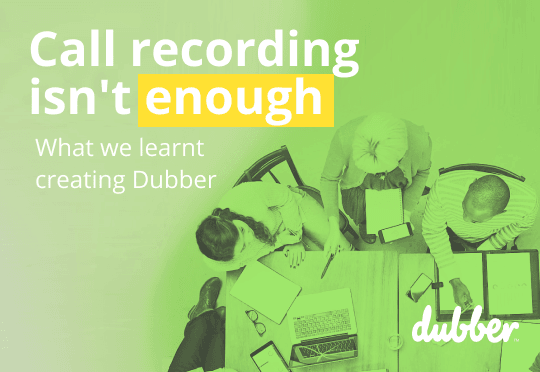
The twenty features you need to ensure your call recording solution meets your compliance needs.
1.Are your recordings clear and accurate?
Recording for compliance is all about accurate record keeping. If all you’re recording is background noise, or broken speech from a poor connection, you’re not really fulfilling your compliance requirements. Your call recording solution should record directly from the network to make sure that every word is crystal clear, no matter the quality of the call.
2.Is your storage secure enough?
When it comes to compliance, particularly in the financial services industry, you’ve got to be in it for the long-haul. Regulations such as MiFID II can require companies to store their recorded conversations for up to 7 years, or even longer. Your call recording solution must have the storage capacity to securely store recorded calls long-term. Cloud storage has a significant advantage over on-premise storage here, as there are no worries about ever running out of space.
3.Can your call recording solution scale to meet demand?
Speaking of storage and capacity…to make sure you capture every single conversation, your call recording solution will need to be scalable enough to cope with multiple concurrent recordings. If you’re running a huge global organisation, there could be hundred or even thousands of conversations happening at once. You need to ensure that all of these calls are recorded.
4.Are your recordings encrypted?
Captured calls need to be protected. With conversations containing highly sensitive personal data, these recordings must be encrypted. And we don’t just mean in storage. Data should be encrypted in transit with transport layer security, as well as at rest. AES-256 is one of the strongest block ciphers available – we encrypt every protected object with a unique encryption key. The object key itself is then encrypted with a regularly rotated master key, for that extra layer of protection.
5.Are you able to record every single call?
We’ve never navigated as many communication channels as we do today. Whether taking client calls on your mobile while we work from home, or chatting with colleagues over Microsoft Teams, for regulatory compliance you need a Unified Call Recording solution that can capture calls across every device and channel.
6.Is your data protected by geographic redundancy?
To really ensure stored data is fully protected, there should be redundancy measures in place to mitigate risk. On-premise solutions can’t compete with the ability of cloud platforms to deploy across multiple data centres within a geographic region. Platform loads can be spread across data centres to provide full redundancy across all elements, including storage.
7.Is your solution available, even in unprecedented events?
Another area that cloud solutions excel in is availability. The various elements of cloud platforms can be decoupled and run as separate services, while processing can be swapped to different servers without downtime. Cloud platforms deploy load balancers to manage traffic and scale processes. Data centre connectivity can be managed and, in the event of catastrophic failure, moved accordingly across the platform architecture.
8.Is all of your data held in one place?
Having data stored in multiple locations is a compliance nightmare. In order to reduce the complexity of compliance, all of your organisation’s recorded conversations should be stored in one unified repository.
9.Do you have a retention policy in place?
Deleting data once it’s no longer required is as equally important as storing it securely in the first place. Particularly when it comes to compliance with regulations like the GDPR, it’s vital that organisations erase data when they no longer have a legitimate purpose to store it. Your call recording for compliance solution should include the option to set retention periods for recordings so they are automatically deleted after a specified period.
10.Are you prepared for a legal hold request?
Legal hold requests can happen at any time. These events mandate the preservation of information, including recorded calls, and can cause hassle for businesses if their data isn’t stored in a unified repository. To cover legal hold requests, your call recording solution needs to have a feature to preserve recorded calls no matter what. This should override standard retention periods, the deletion of a user or the expiration of overall storage periods.
11.Who can access recordings?
Access to recorded calls should be restricted to appropriate users for data protection, so your call recording solution should enable strict and secure permissions and team structures. Make sure you can group users into teams and control who can listen to recordings within a team. As standard, users should only be able to listen to their own recordings and users outside a team shouldn’t be able to access recordings.
12.How is access to recordings authenticated?
To ensure data is transmitted securely, access to recorded calls should be monitored and your call recording solution should employ stringent password policies and granular permissions that control user access to system features, functionality, and recorded data. For extra security, access to content should be via tokenised sessions.
13.Can you instantly retrieve recordings?
Often regulatory compliance requires instant access to data in order to comply with audits or other requests for information. All recorded calls should be instantly available to prepare for these kinds of situations. Cloud solutions are the ultimate solution – with recorded call data immediately available to replay, securely download, review, or delete on request.
14.Are your recordings time-stamped?
As part of regulatory audits, legal hold requests, or dispute resolution, organisations are often required to retrieve all calls from a specific time or date. Your recording solution should time-stamp all calls and allow search results to be filtered by date or time as well as user.
15.Can you pause and resume recording for PCI DSS?
Any organisations that take card payments over the phone will be familiar with the requirements of PCI DSS compliance. Certain payment card information is not allowed to be collected so your call recording solution must have the ability to pause and resume recording.
16.Does your call recording solution proactively mitigate risk?
Most industry regulations have been put into place in order to protect consumers and promote best practices. Your call recording solution can actually be a useful tool for proactive improvements and risk mitigation when it includes voice AI. When calls are transcribed, keyword searches can be put in place for the early detection of risky behaviour – deterring potential bad actors.
17.Can you securely export your data for visualisation?
Exporting voice data, securely of course, for analysis is another way to get a really clear picture of how your organisation is operating in order to reduce your level of risk. By visualising trends across a company, business leaders can get clear visibility over their operations.
18.Do you receive alerts for risky behaviour?
In order to respond to compliance risks instantly, you need real-time alerts to risky behaviour within your organisation. Using transcription, your call recording solution should provide the ability to create instant alerts for keywords specific to your industry or even your organisation. When these words are spoken during a call, managers or supervisors will receive an email warning them and giving them a link to the recording of the conversation in question.
19.Can you implement intuitive workflows and rule-based automation?
Automation shouldn’t stop at keyword alerts. To streamline processes within a business, your call recording solution should include an open API that allows you to create intuitive workflows and rule-based automation. These can automatically populate other business applications with call data for increased productivity and visibility across operations.
20.Can you ensure business continuity?
Business continuity really came to the forefront in 2020 and is a key component of any organisation’s risk and compliance management. Ensuring that your business can continue to operate securely, no matter where your workforce is based is essential. With remote working looking increasingly like it is here to stay, your call recording solution must not be confined to your office. Likewise with data storage. Ensure your voice data is protected by storage that will continue to operate securely, even in the face of unprecedented events.
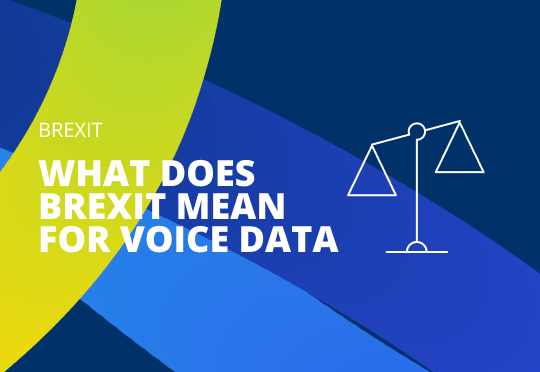
It’s official, the UK is no longer part of the European Union and the transition period is rapidly coming to a close. What does this mean for data protection? Do businesses still need to comply with the GDPR after December 31st 2020?
For those businesses who operate within the European Economic Area (EEA) and record their phone calls, they must check that their protection of voice data is sufficient for a post-Brexit world. If data is processed in the UK, they must ensure that they have contractual provisions in place to reflect any flow of data between the EEA and the UK. Any preparations need to consider the progress of negotiations that are continuing during this current transition period. GDPR may well remain part of UK law.
What legislation currently applies?
Parliament has passed The Data Protection, Privacy and Electronic Communications (Amendments etc) (EU Exit) Regulations 2019, which is basically the GDPR but applicable to a UK-only context. This will apply from the end of the transition period. If you’re a business based outside of the UK and offer goods or services to or monitor individuals in the UK this is applicable to you. If you’re a UK business and you’re already compliant with GDPR, and you don’t have any customers or contacts in the EEA, then you’re already sorted…or are you?
Any data protection plans are contingent on an adequacy decision from the European Commission, where the European Commission decides whether the UK offers an adequate level of data protection. With a rewrite of UK data protection laws potentially on the horizon, an adequacy decision could be significantly delayed. If no adequacy decision is made, businesses may need to amend their current contracts in order to continue data transfers. The extra cost of this undertaking could be bad news for small businesses.
What happens after the transition period?
From January 1st 2021, the UK will be deemed a “third country” under the GDPR, which means personal data from the EEA will only be able to be transferred if:
- The European Commission issues an adequacy decision
- Appropriate safeguards are in place
- There is an agreement of approved codes of conduct
- There is certification under an approved certification mechanism together with binding and enforceable commitments on the receiver outside the EEA
If you’re a UK business that receives personal data from contacts in the EEA, you will need to take extra steps to ensure that this data transfer can still go ahead. If you’re a UK business with some form of presence or customers in the EEA, you’ll have to comply with both the UK and EU legislation and may even have to appoint a European Representative. You will need to implement an appropriate mechanism to transfer personal data from the EEA to the UK and any onward transfers to another third country. Several of these mechanisms are already laid out in the GDPR, including standard contractual clauses adopted by the European Commission (SCCs).
Organisations should be able to continue transferring data from the UK to the EEA, but data protection documentation and contracts will require updating.
Businesses that transfer data from the UK to countries outside the EEA should be able to continue with existing processes for now, but any reforms of UK data protection laws could change that. The really tricky part is transferring to and from the US. This is due to the EU/US ‘Privacy Shield’ agreement being declared invalid by the EU Courts. This means yet more contract updates and appropriate safeguards.
What is Dubber doing to prepare for Brexit?
Dubber already complies with GDPR and will ensure that we continue to do so after the transition period, whether or not the UK is considered an adequate third country.
Let us know if you have any questions about voice data and Brexit.
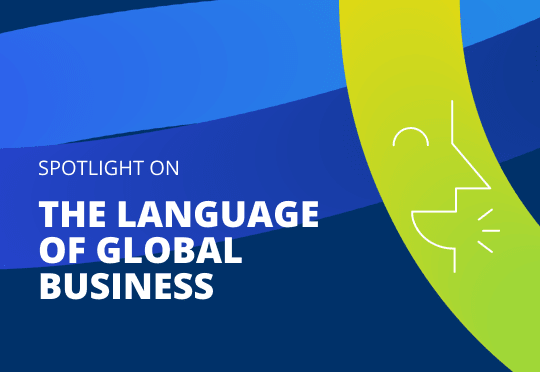
As business becomes more and more international, the languages used to communicate only become more numerous. This globalised way of operating requires a multilingual approach.
With national economies fluctuating constantly, the dominant languages of business may change – and global companies will need to be prepared. As part of their international expansion, businesses should include language in their strategy.
In the same way that machine translation has improved accessibility online, machine transcription is facilitating global business. The intersection of machine learning and language translation is helping businesses across the world reach new audiences. Part of Dubber’s mission to bring voice AI to everybody is breaking down language barriers and allowing everyone to operate in their preferred language. Offering more languages for transcription helps us better serve businesses who operate globally.Good communication allows people located across the globe to exchange information and ideas and coordinate work and business operations. With remote work the new normal, business in the future may operate from different continents as standard. AI is facilitating this. Research in the US found that the introduction of machine translation increased exports by 10.9% and improved economic efficiency1.
Speaking your language
Not only is it important that your voice transcription solution supports different languages but also regional variants. While Spanish speakers from around the world might speak the same language on paper, there are many regional differences. Companies who operate in Spanish speaking areas including Puerto Rico and Mexico use Dubber’s services, and are supported by the regional transcription variants that we provide.
In order to offer the broadest possible range of languages to our customer base we use multiple transcription services – adding Google Cloud Speech-to-Text to our arsenal this year. Google and IBM Watson also help us to identify caller sentiment, including tone and emotion.
One of the key advantages of AI transcription is speed: AI can transcribe hours of recordings quickly – work that would take human transcribers days or even years. This makes machine transcription much cheaper than employing a human transcriber, or using the time of your staff to review calls. With voice AI able to detect keywords and analyse the sentiment of a call, the expertise of your employees can be saved for reviewing the tiny sample of calls identified as requiring attention.
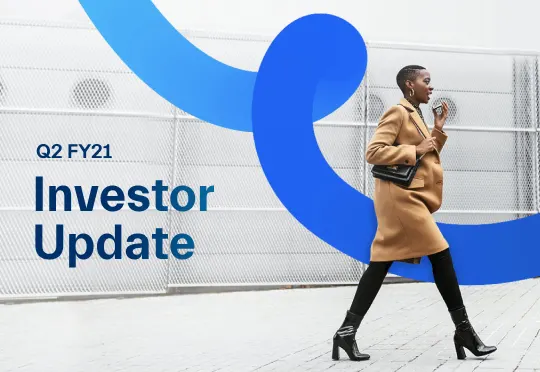
Today we had the opportunity to take Shareholders through Dubber’s strategy and why we are so excited about the opportunity ahead of us.

James Slaney is the co-founder of Dubber. Here he gives us an overview of how voice data can provide solutions to business problems.
There’s one piece missing from every organisation’s compliance and performance puzzle. Voice. And AI powered Unified Call Recording is the answer.
Today the majority of our business interactions are voice-based. And more than ever, those calls are happening outside of the call centre.
When those calls and conversations end, critical content and value is lost forever. Imagine losing the majority of your data every day.
Traditional approaches to call recording don’t work when calls are happening across devices and communication platforms like Microsoft Teams. Hardware costs, lack of scalability, insurmountable technical barriers, and compliance difficulties mean a new approach is needed.
Businesses are left not knowing.
With customers consistently choosing to contact brands over the phone, critical content and value is being lost every day. Businesses who aren’t capturing their voice data are left asking what their customers are saying, whether they’re satisfied, what the details of their orders were, and whether their records are up to date.
That’s why we created Dubber, the world’s #1 Unified Call Recording solution powered by the cloud and AI. It’s the only fully scalable and compliant solution that can be switched on with a click.
A data-driven approach to customer and employee experience is critical to the growth and development of an organisation, particularly In today’s hyper-competitive economy.
Unified Call Recording automatically captures every call and transforms conversations into tangible data through AI. Voice data can be used to power transcripts, real-time search, alerts, and sentiment analysis.
Only 36% of executives have real-time, highly integrated capabilities across all customer channels within their enterprise.
Data doesn’t stop with Dubber. The future of customer service will see one unified record of interactions across every channel, no longer requiring a customer to relay their entire history to each new representative they speak to. Why wait for the future? What if every customer call was automatically transcribed and logged within your company’s CRM application?
Using an open API, businesses can populate CRM tools with a unified record of customer interactions. Imagine every Salesforce record up-to-date with the most recent customer conversation: including the recording, transcript, and even customer sentiment.
The integration of business data is the foundation for superior data-driven customer experiences and compliance.
Together we can unlock the potential of voice data to power better business outcomes, enterprise transformation and business continuity.

